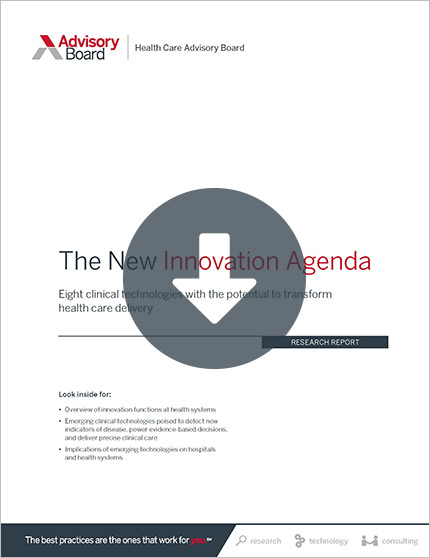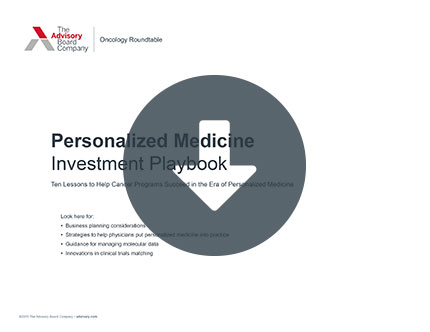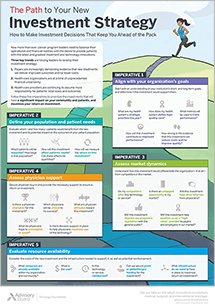Auto logout in seconds.
Continue LogoutEditor's note: This story was updated on February 25, 2019.
CMS has proposed a national policy under which Medicare would cover CAR T-cell immunotherapies that treat cancer, but experts are concerned the proposal could limit beneficiaries' access to the treatments.
About CAR T-cell immunotherapy
CAR T-cell immunotherapies are a precision cancer treatment that entails extracting immune system T-cells from a patient's blood. The T-cells then are frozen and shipped to the drugmakers' facility, where they are genetically modified to attack the patient's cancerous cells. Physicians then infuse the T-cells back into the patient, at which point they begin fighting the cancer.
To date, FDA has approved two CAR T-cell therapies, Kymriah and Yescarta, to treat certain relapsed or refractory leukemias and lymphomas. A full course of treatment—not including hospital stay costs—can cost hundreds of thousands of dollars.
However, CMS in the proposal noted there is no national policy for covering the treatments. Currently, coverage decisions are made by individual regional Medicare contractors. But when Medicare does cover the therapies it often only covers a portion of the price. CMS last year set Medicare Part B reimbursements for CAR T-cell therapies at $400,000 for Yescarta and $500,000 for Kymriah in the outpatient setting. However, most CAR T-cell therapies are administered in the inpatient setting. In the FY 2019 inpatient final rule, CMS approved a DRG code for the procedure as well as technology add-on payments that result in a maximum payment of $186,500 per case. However, they expect to pay an average of $36,000 before payment adjustments per case.
About 70 to 80 cancer centers in the United States currently are authorized to administer CAR T-cell immunotherapies, but most of the centers are not actively providing the treatment. The therapy's costs and the expertise required to administer the therapies poses barriers to more facilities offering the treatment.
Proposal details
Under CMS' new proposal, Medicare would be required to cover Kymriah and Yescarta if beneficiaries receiving the treatments agree to participate in a CMS-approved registry or clinical trial for at least two years to assess the treatment's long-term effects. CMS said it will use the data collected on the beneficiaries' outcomes to determine under which cases Medicare will cover CAR T-Cell therapies in the future.
CMS said the proposal applies to both outpatient and inpatient care, and noted it could expand the coverage to include any new CAR T-cell therapies that are approved for use in the future.
CMS Administrator Seema Verma said the agency's proposal "would improve access to this therapy while deepening CMS' understanding of how patients in Medicare respond to it, so the agency can ensure that it is paying for CAR T-cell therapy for cases in which the benefits outweigh the risks." She noted, "CAR T-cell therapy was the first FDA-approved gene therapy, marking the beginning of an entirely new approach to treating serious and even life-threatening diseases."
CMS is accepting public comments on the proposal for 30 days and is expected to finalize the proposal in May.
Experts say proposal could limit Medicare beneficiaries' access to CAR T-cell therapies
Experts have raised concerns that the proposal might further limit Medicare beneficiaries' access to CAR T-cell therapies by placing new administrative burdens on facilities that administer the therapies. That could slow the pace at which beneficiaries can receive the treatments, the experts argued.
For example, Joseph Alvarnas, chair of the American Society for Hematology's Committee on Practice and a physician at California's City of Hope cancer treatment center, noted that the proposal would require beneficiary consent, data collection, and the management of a costly clinical trial or registry. He said, "Some centers may decide that the burden associated with this is great enough that they may not offer this particular set of services."
Brian Abrahams, an RBC Capital Markets analyst, similarly said, "The initial requirements for centers to be engaged in a registry could limit breadth of use until there is additional real-world experience."
However, Alvarnas said, "The ability to deliver these things while in the process of evidence development is preferable to CMS deciding not to cover CAR T-cells."
Gilead Sciences, which manufactures Yescarta, and Novartis, which manufactures Kymriah, said they plan to comment on the agency's proposal. Gilead said it is encouraged by the proposal, and Novartis said it is pleased to collaborate with stakeholders to ensure patients have access to Kymriah (Hellmann, The Hill, 2/15; Beasley, Reuters, 2/15; Siddons, CQ News, 2/15 [subscription required]; CMS release, 2/15; Truong, MedCity News, 2/18; Inserro, American Journal of Managed Care, 8/3/18).
Advisory Board's take

Deirdre Saulet, Practice Manager, Oncology Roundtable
I see three major ramifications from Medicare's proposal to cover CAR T-cell therapy through its CED ("Coverage with Evidence Development") paradigm:
- First off, this would provide more consistent and predictable reimbursement for providers. Today, coverage often varies based on the local Medicare contractor, heightening the difficulty for providers to understand and plan for the complex finances surrounding this therapy. (For more about the current reimbursement situation, read my blog here).
- Second, this proposal would create a system to better track and understand the benefits and long-term risks of CAR T. This proposal would require all organizations administering CAR T to participate in a CMS-approved registry and track specific clinical data and patient-reported outcomes at regular intervals. Thus far, the real world data collected on CAR T has been consistent with the clinical trial results that led to FDA approval of Yescarta in 2017. But in this proposal, CMS emphasizes the importance of having larger patient populations and longer follow-up times to fully understand the value to Medicare beneficiaries.
“Cancer centers need to prepare themselves to operate successfully in the world of these new, expensive therapies”
- Lastly, CMS will restrict the organizations able to administer CAR T-cell therapy based on their programmatic infrastructure—requiring cellular therapy expertise, designated care areas to reduce risk of infection, and standardized guidelines for patients receiving the treatment. While it's possible that this could reduce the number of organizations willing to provide the treatment, it's worth noting that providers already have to meet specific requirements before being authorized to administer CAR T by the drug manufacturers. So CMS' requirements may increase administrative burdens for these providers (mainly by requiring them to participate in research through use of registries), but will likely not greatly impact the number of organizations offering CAR T as a whole.
Whether or not your organization will be providing CAR T, this new coverage determination reflects the growing prominence of these therapies in the health care industry. Cancer centers need to prepare themselves to operate successfully in the world of these new, expensive therapies. At the end of 2017, there were over 2,000 immunotherapies in development—ranging from cellular therapies to cancer vaccines to checkpoint inhibitors. This means that cancer program leaders can no longer afford to wait to establish an infrastructure to deal with the evolving landscape of cancer treatment. Critical elements include:
- Proactive evaluation of drugs in the pipeline and processes to manage those coming on the market;
- Education and support for patients, including comprehensive side effect management and robust financial navigation;
- Education and support for oncologists (one-third of Trending Now in Cancer Care respondents said that their oncologists felt "very uncomfortable" managing immunotherapy-related side effects); and
- Ongoing analysis of drug costs, revenues, and revenue cycle performance, including rate of denials.
To learn more CAR T-cell therapy, other clinical innovations in oncology, and how to balance economic realities with the need for innovation, be sure to download out research report on Clinical Innovations in Oncology.
The path to your new cancer program investment strategy
Cancer programs must balance their operational and financial realities with the desire to provide patients with the latest and greatest treatments and technologies. Find out how to ensure your investments have a significant impact on your patients and maximize your financial return.
Don't miss out on the latest Advisory Board insights
Create your free account to access 1 resource, including the latest research and webinars.
Want access without creating an account?
You have 1 free members-only resource remaining this month.
1 free members-only resources remaining
1 free members-only resources remaining
You've reached your limit of free insights
Become a member to access all of Advisory Board's resources, events, and experts
Never miss out on the latest innovative health care content tailored to you.
Benefits include:
You've reached your limit of free insights
Become a member to access all of Advisory Board's resources, events, and experts
Never miss out on the latest innovative health care content tailored to you.
Benefits include:
This content is available through your Curated Research partnership with Advisory Board. Click on ‘view this resource’ to read the full piece
Email ask@advisory.com to learn more
Click on ‘Become a Member’ to learn about the benefits of a Full-Access partnership with Advisory Board
Never miss out on the latest innovative health care content tailored to you.
Benefits Include:
This is for members only. Learn more.
Click on ‘Become a Member’ to learn about the benefits of a Full-Access partnership with Advisory Board
Never miss out on the latest innovative health care content tailored to you.



